
Mary Lobo (born in 1922 or 1923) was a prominent social worker, clubwoman and women's rights activist in Singapore. She served as the president of the Kamala Club, a prominent club for Indian women in Singapore.

Mary Lobo (born in 1922 or 1923) was a prominent social worker, clubwoman and women's rights activist in Singapore. She served as the president of the Kamala Club, a prominent club for Indian women in Singapore.
Lobo was born in Mangalore, India. She came to Singapore at the age of six and was educated at the Convent of the Holy Infant Jesus. [1]
In April 1947, Lobo was elected the president of the Women's Section of the Singapore Regional Indian Congress. [2] In 1948, she proposed that the Gandhi Memorial Fund be used to erect a memorial hall instead of a statue. She then resigned from her position in the Women's Section to focus on developing the proposal. [3] She was appointed a Justice of the Peace in April 1950, making her one of the few female justices of the peace in Singapore. [4] She served as the joint secretary of the Lotus Club and the secretary of the Sodality of Our Lady of the Lourdes. She worked with the Girls Home on Mount Mary, the Anti-Tuberculosis Fund and the Ramakrishna Mission Singapore, and served as the joint secretary of the mission's building fund. She served on the committee which organised a concert for the Gandhi Memorial Fund and assisted at both a local orphanage and the Social Welfare Department feeding centre. [5] [6] In 1952, she urged for the formation of a women's corps for civil defence. [7] By 1953, she had served as the president of the New Homes Tenants Association and the vice-president of the Kamala Club, which was formed through the merger of the Lotus Club with the Ladies' Union. She had also served on the management committee of the local YWCA, as well as on the Film Appeals Board. [1]
On 6 October 1953, the Singapore Progressive Party nominated Lobo to contest the City Ward in the 1953 Singapore City Council election. [1] However, as she had moved from Geylang to Bukit Timah, which was located beyond city limits, she lost her right to stand in the city council elections and was thus disqualified. [8] [9] If she had not been disqualified, she would have been the only female candidate in the election. [10] In September 1954, she was elected the president of the International Women's Club of Singapore for 1955. [11] [12] By 1956, she had become the chairman of Women Justices of the Peace and the vice-president of the Singapore Voluntary Workers' Association, as well as a member of the Woodbridge Hospital board and an assistant librarian at the Tan Tock Seng Hospital. [13] [14] In the same year, she was appointed a delegate to the International Alliance of Women's golden jubilee conference, which was held in Colombo. [15] She advocated for the creation of a local Alliance of Women, the purpose of which would be to "urge women to use their rights and influence in public life," [16] and the establishment of a home for unmarried mothers. [17]
Lobo served as the vice-president of the Singapore Council of Women. In 1957, the government appointed her as an official delegate to the Asian Women's conference held in Bangkok. After returning to Singapore, she delivered an eight-page report on how women had more rights in Singapore than in many other Asian countries. [18] However, in August, it was reported that she had claimed at the conference that Singaporean men were "wonderful" as Singaporean women "never have to fight for their rights, they are given to us". [19] Several prominent local women, including politician Phyllis Eu Cheng Li and the council's general secretary Shirin Fozdar, strongly criticised the statement. [20] In response to the statement, Fozdar sent a letter containing a cutting of a report by The Straits Times on the then-69-times-married Tengku Mohammed Ariffin, a Singaporean Malay businessman and distant relative of the Sultan of Perak, to the conference's organiser. [21] On 10 August, she reaffirmed her belief that local men were "wonderful" and stated that when compared to other countries in Europe or Asia, Singaporean women have been able to attain rights easier, but added that there were still areas in which women's rights could be improved. [22] Later that month, it was reported that the issue had been resolved as Lobo had clarified that she had been referring to "political rights", and that the statement had been made at an informal tea party, not at the conference itself. [23]
In 1958, she was the official Singaporean delegate to the United Nations seminar on "Increase Participation of Asian Women in Public Life." [24] She also served as the chairman of the building fund for the Kamala Club clubhouse, which was officially opened on 8 September 1958. [25] In September 1961, she was elected the club's president. [26] As the newly-elected president, she urged the club's members to ensure that they had paid the club's yearly subscription fee, as only 20 of the club's 165 members had paid their subscriptions for that year. [27] In the same year, she also served the chairman of the Grail Movement, which was formed to raise funds for a centre for the training of social workers. In October, she organised a 20-stall bazaar which was patronised by over 2,000 people, the proceeds of which went to the construction of the centre. [28]
Lobo married Matthew Lobo of Gammon (Malaya) Ltd at the Church of the Holy Family, Singapore in Katong on 8 June 1939. [1] [29] She gave birth to two twin sons in 1960. [24] Despite being a devout Catholic, she helped collect funds for organisations of other religions in addition to her own church. [6] By 1959, she could speak English, Hindustani, French and a little bit of Malay, and was in the process of learning Mandarin. [30] In April 1963, she left Singapore for Bangalore. [31]

Kwa Geok Choo was a Singaporean lawyer. She was the wife of Lee Kuan Yew, the founding Prime Minister of Singapore and the mother of Lee Hsien Loong, Lee Hsien Yang, and Lee Wei Ling.
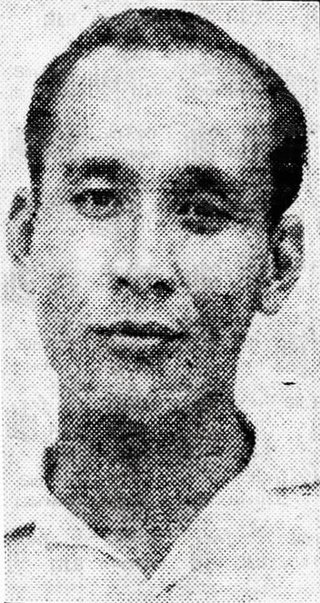
Ong Poh Lim was a Malayan/Singaporean badminton player who had won numerous national and international titles from the late 1940s to the early 1960s. Known for his quickness and his aggressive, unorthodox playing style, Ong won many singles and doubles titles, including the All-England, Danish, French, Malayan, Singapore and Thomas Cup championships in the 1940s and 1950s. He also invented the backhand flick serve known as the “crocodile serve”, a tactic that had been routinely used in the modern game. Ong was a keen rival to badminton legend Wong Peng Soon.
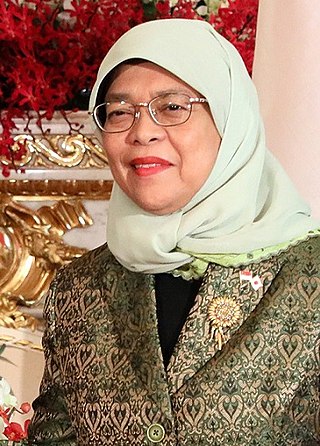
Halimah binti Yacob is a distinguished Singaporean politician and lawyer who held the office of the eighth president of Singapore from 2017 to 2023, making history as the first woman to serve in this role.

Khatijun Nissa Siraj was a Singporean women's rights activist and the co-founder of the Young Women Muslim Association of Singapore (PPIS) and the Muslim Women's Welfare Council. In response to an epidemic within the Singaporean Muslim community of women being abandoned by their husbands through inexpensive, informal divorces, Siraj and the PPIS successfully pressed for the formation of a Syariah Court. Siraj was the first case worker for the court, which had authority over marriages and divorces. In addition to her work with the PPIS, Siraj worked with a number of other organizations that worked to improve women's welfare. She was mother to law professor Mehrun Siraj (1945-2021) and grandmother to actor-director Huzir Sulaiman.
Shirin Fozdar (1905–1992) was a women's rights activist. Born in India, she worked on women's rights and welfare issues in her native country in the 1930s and 1940s. In 1950 she and her husband moved to Singapore to help spread the Baháʼí Faith. In Singapore, she became a champion against marriage inequality and polygamy; she was instrumental in the founding of the Singapore Council of Women and of the nation's Syariah Court, and was a leader in the advocacy effort that saw the Women's Charter become law.
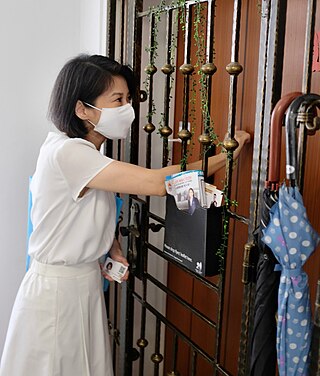
Sun Xueling is a Singaporean politician who has been serving as Minister of State for Social and Family Development since 2020 and Minister of State for Home Affairs since 2022. She previously served as Minister of State for Education between 2020 and 2022. A member of the governing People's Action Party (PAP), she has been the Member of Parliament (MP) representing Punggol West SMC since 2020.
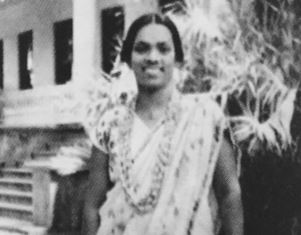
Checha Davies (1898–1979) was an Indian-born Singaporean social worker and women's rights activist. In her younger days, she was an educator but after her move to Singapore she was active in church work and social service organisations, serving as president of the YWCA on two separate occasions. Davies was instrumental in the committee which drafted the rules for the Singapore Council of Women and served on its executive committee. Davies received the Public Service Star in 1970 and was inducted into the Singapore Women's Hall of Fame in its inaugural year, 2014.
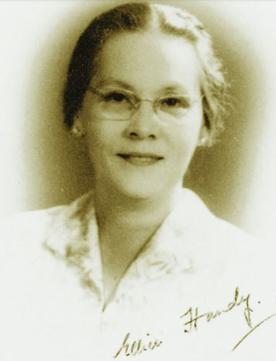
Ellice Handy, (1902–1989) was a Singaporean educator, education administrator and author of Singapore's first cookbook on local cuisine. Her cookbook is the longest-selling compilation of recipes in Singapore and is considered a must-have volume by many cooks. She was inducted into the Singapore Women's Hall of Fame in 2015.
The Singapore Council of Women (SCW) was an organization based in Singapore. The group advocated for women's rights and was especially vocal on issues relating to women and marriage. The SCW also made sure it had a good relationship with the media, and wrote often to newspapers about women's issues. SCW lectured on women's rights in various neighborhoods in Singapore. The advocacy efforts of SCW helped speed the passage of the Women's Charter.
Seow Peck Leng was a Singaporean politician, educator and advocate for women's rights. She was one of the first women members of parliament in Singapore and the only woman of an opposition party at the time.
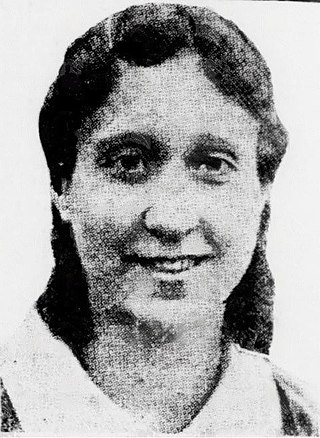
Alice Edith Wilhelmina Pennefather was a Singaporean sportwoman who excelled in various sports such as badminton, field hockey, netball, and tennis. In 2016, she was inducted into the Singapore Women's Hall of Fame, maintained by the Singapore Council of Women's Organisations.
Tan Cheng Hiong (1904–1999) was a Singaporean women's rights activist and the first president of the Singapore Council of Women. She was inducted into the Singapore Women's Hall of Fame on 18 March 2016.
Julie Tan Eng Poh was a women's rights activist in Singapore who served as the founding president of the Singapore Council of Women's Organisations.
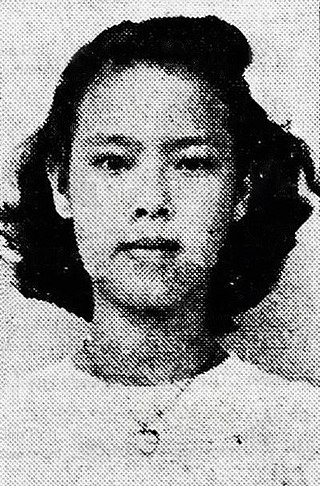
Helen Heng Siak Neo was a Singaporean badminton player who won numerous titles in the late 1940s to the mid 1950s. She was Singapore's badminton star of the 1950s and was the youngest winner of the Malaysia Open women's singles and doubles titles when she won it at the age of 15. Helen was also the most successful female shuttler in Singapore Open history with 15 titles and the first female player from Singapore to participate in the Uber Cup as part of the Malayan team in 1956.

Shrish Chandra Goho was a prominent lawyer and politician in Singapore. He was a member of the Legislative Council of Singapore.

Amala Menon was a clubwoman in Singapore. She was the founder of the Lotus Club, an early club for Indian and Ceylonese women, and the founding president of its successor, the Kamala Club.

Myra Isabelle Cresson was a social worker in Singapore. She served as the president of the Inner Wheel Club of Singapore and as the Colony Commissioner of the Singapore Girl Guides Association.
Sun Yee was a prominent Zhejiang-born painter and arts educator who settled down in Singapore in 1954. She held close to 100 exhibitions and went on three separate world tours. She spent nearly three decades as the first and only principal of the Singapore Academy of Arts.

Tay Lee Howe, better known as Maria Lee Howe, was a Singaporean musical conductor, critic, educator and composer. Born in China, she came to Singapore after receiving musical education in Shanghai before the Japanese Occupation. After the end of the war, she left for London, where she furthered her musical education. Returning to Singapore in the 1950s, she founded the Lee Howe Choral Society, one of the first choirs in Singapore, and served as its conductor. At one point, she was one of only two female conductors on the island. She later taught music at several local schools. Tay was awarded the Bintang Bakti Masyarakat in 1978, the year of her official retirement from teaching. However, she continued to conduct for the choral society. Tay was also a writer, a supporter of the local scout's movement and a columnist for the Lianhe Zaobao.

Felice Leon-Soh was a politician and social worker in Singapore. Initially a school principal, she was elected a member of the City Council of Singapore representing Mountbatten as a member of the Liberal Socialist Party (LSP) in 1957. She left the party at the start of 1959 due to a dispute. She then continued in the council as an independent for a few months before resigning to contest in the 1959 Singaporean general election as the president of the Katong United Residents' Association (KURA).